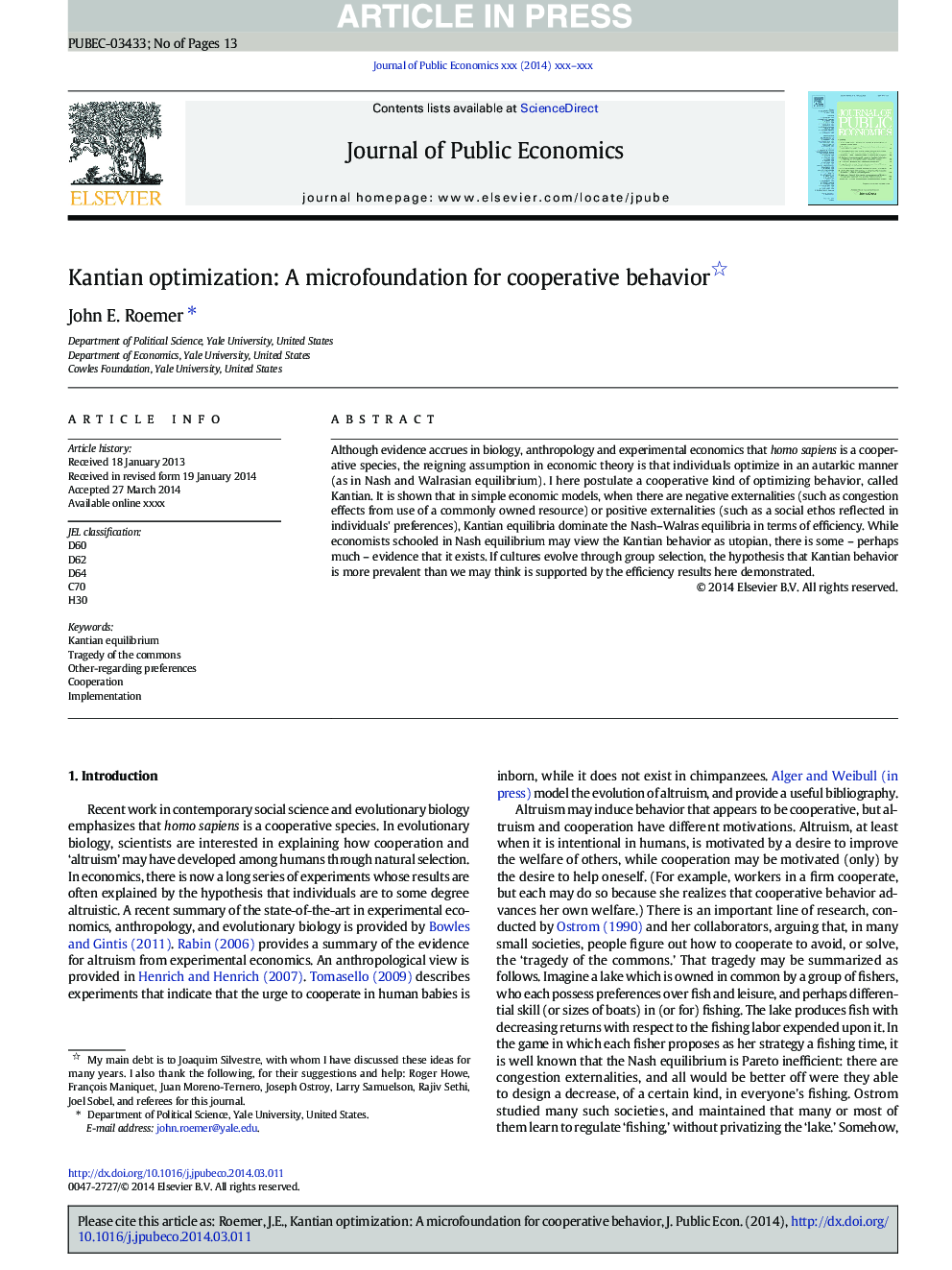| Article ID | Journal | Published Year | Pages | File Type |
|---|---|---|---|---|
| 7370010 | Journal of Public Economics | 2015 | 13 Pages |
Abstract
Although evidence accrues in biology, anthropology and experimental economics that homo sapiens is a cooperative species, the reigning assumption in economic theory is that individuals optimize in an autarkic manner (as in Nash and Walrasian equilibrium). I here postulate a cooperative kind of optimizing behavior, called Kantian. It is shown that in simple economic models, when there are negative externalities (such as congestion effects from use of a commonly owned resource) or positive externalities (such as a social ethos reflected in individuals' preferences), Kantian equilibria dominate the Nash-Walras equilibria in terms of efficiency. While economists schooled in Nash equilibrium may view the Kantian behavior as utopian, there is some - perhaps much - evidence that it exists. If cultures evolve through group selection, the hypothesis that Kantian behavior is more prevalent than we may think is supported by the efficiency results here demonstrated.
Related Topics
Social Sciences and Humanities
Economics, Econometrics and Finance
Economics and Econometrics
Authors
John E. Roemer,
